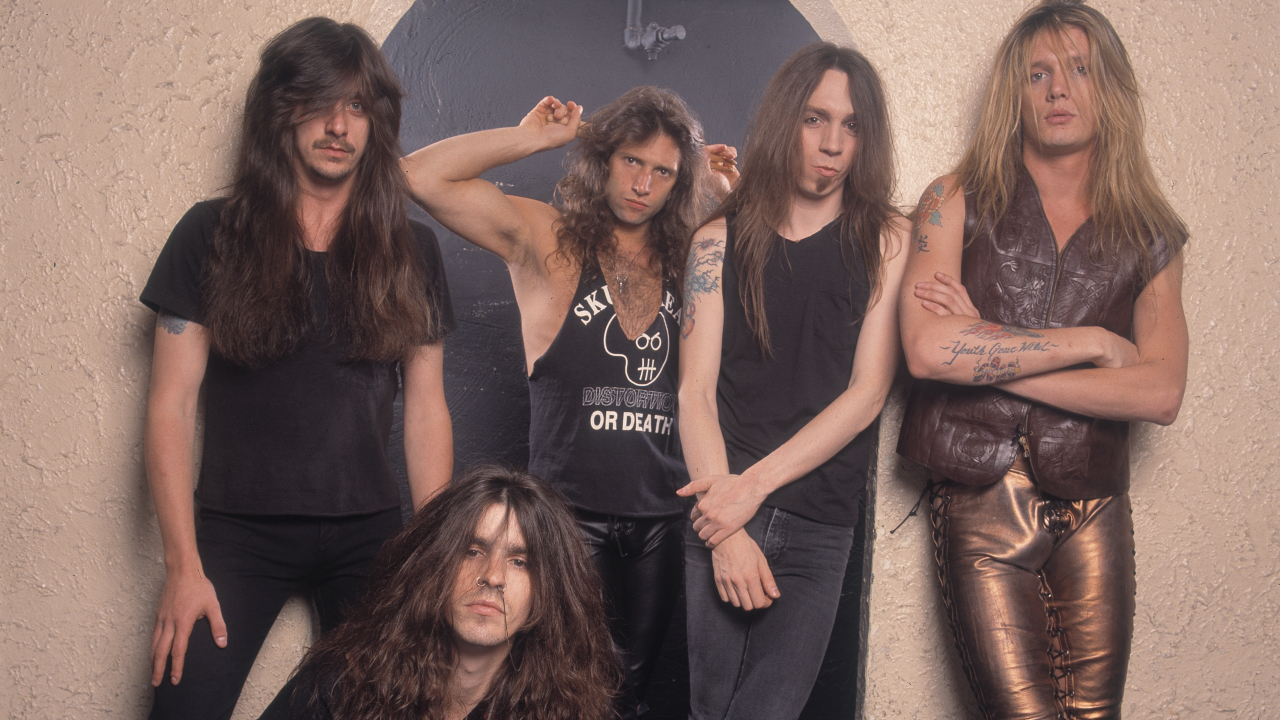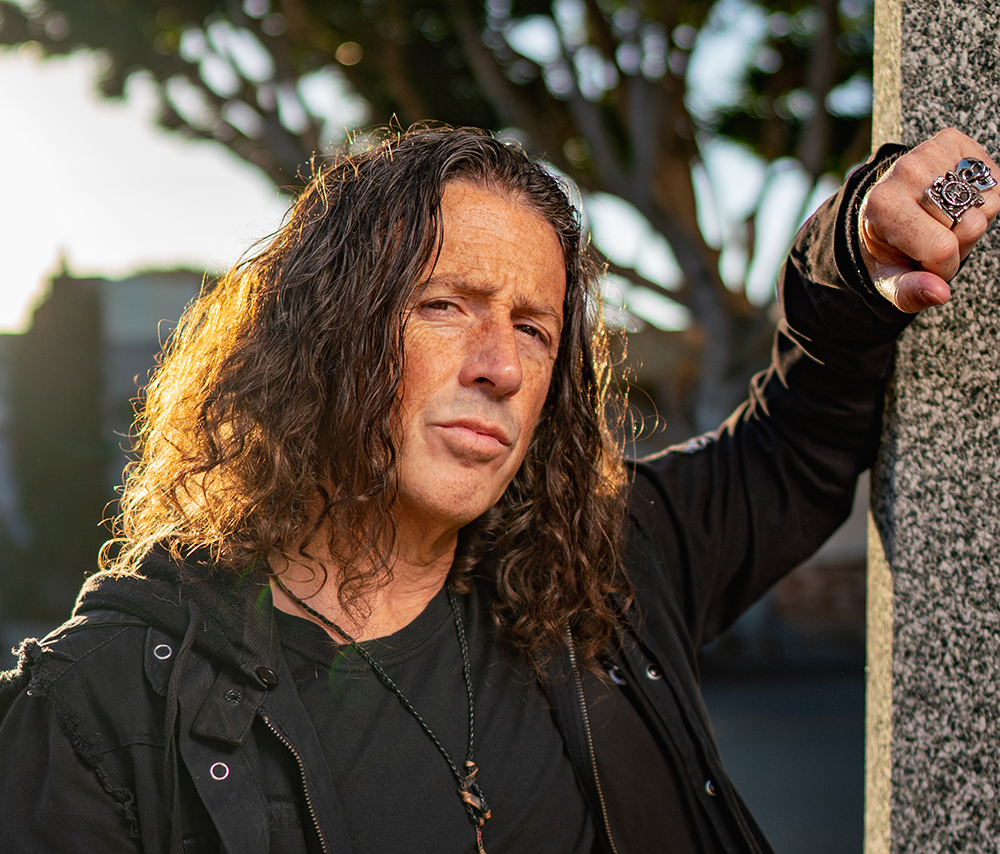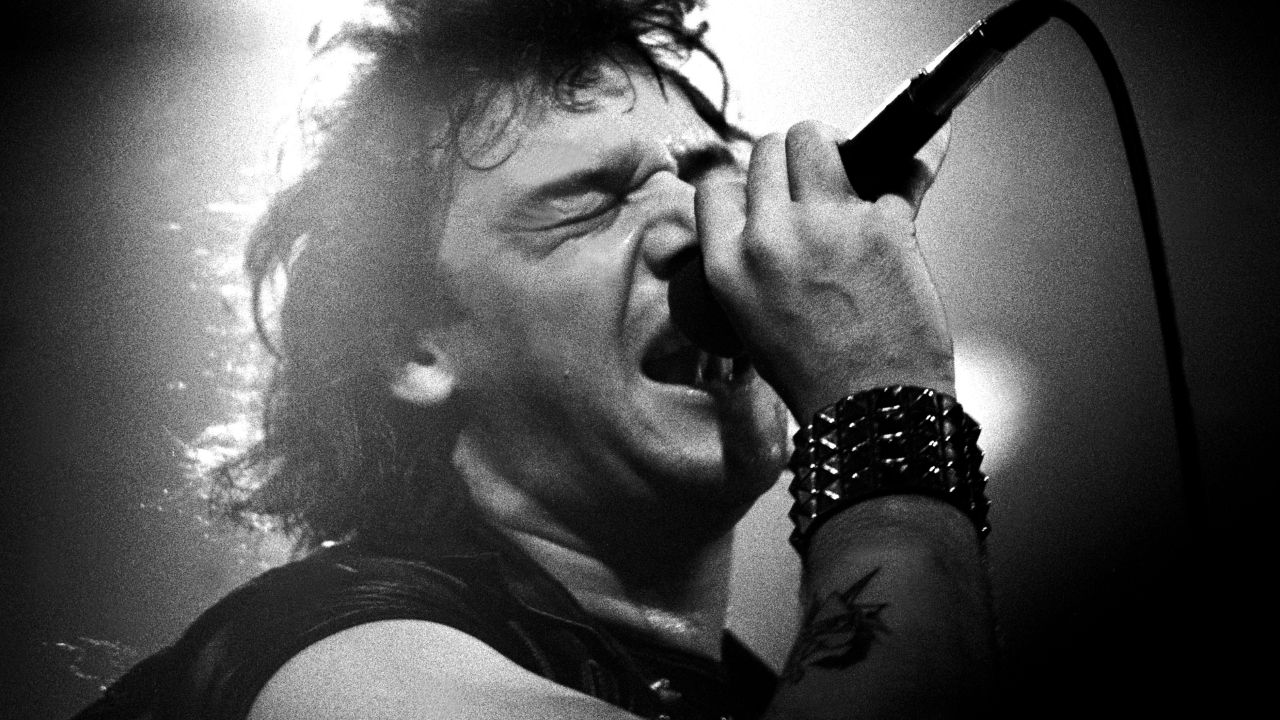11 things you never knew about Skid Row's Slave To The Grind
From hanging with Lars Ulrich to Sebastian Bach saying no to objectifying women, here are eleven facts about Skid Row's classic second album you may have missed

Released in June, 1991, Skid Row’s sophomore outing torpedoed any lingering associations between the New Jersey five-piece and the glam metal movement of the late-80s. Produced for maximum blastage, Slave To The Grind forged a streetwise alliance between punk rock’s anti-authoritarianism and the arena-sized squall of Led Zeppelin. Hyper-aggressive bangers like Monkey Business, Riot Act and the title track seethed with knife-edged menace while lighter-raising power ballads like Quicksand Jeasus and Wasted Time showcased Sebastian Bach’s cavernous vocal range. Along with guitarists Dave “Snake” Sabo and Scotti Hill, bassist Rachel Bolan and drummer Rob Affuso, Skid Row reached soaring commercial and creative highs that they have yet to equal and, over thirty years later, Slave... still sounds vital and compelling. Here are ten under-the-radar facts about the album.

Slave To The Grind debuted at number one on the Billboard 200
While Quiet Riot’s 1983 Metal Health album would eventually claw and scratch its way to the number one slot on the Billboard charts — the first metal album to reach the top — Slave... owns the distinction of being the first metal album to debut at number one. It sold 134,000 copies in the first week — no small feat, considering this was still the era when people had to throw on their shoes and head out to their local record shop to obtain new music. By the end of July, the album was certified platinum.
Sebastian Bach’s father painted the album’s cover art
Bach’s father, artist David Bierk, painted the album’s cover art, which was inspired by Burial Of St. Lucy, a seventeenth-century painting by the Italian artist Caravaggio. There are several notable updates in the Slave... version, such as the uncanny resemblance between the titular figure of the original and Skid Row’s singer. There’s also a JFK lookalike and a scantily-clad woman in thigh-high boots who would have had a very difficult time indeed trying to pull off such an outfit in medieval times. Bach still owns the original and in 2021, he explained that the painting had survived a hurricane and two evacuations for fires, saying, “It’s fine. And now I live in Las Vegas and it’s on my wall here.”
They recorded the title track in an hour
Skid Row wrote most of the album in a New Jersey studio and then demoed the tracks with co-producer Michael Wagener, who had helmed their debut. The title cut had been recorded live in their rehearsal room before they all decamped to Fort Lauderdale, Florida to track the rest of the album. Recalling the sessions, Wagener told The Decibel Geek podcast, "The song Slave to the Grind was recorded and mixed in an hour, and that's what you're hearing on the record. It was not even remixed. Everything is live."
Sebastian Bach was in a mood during the sessions
Though the recording of Slave... was largely productive and devoid of drama, Bach was allegedly in a foul mood at the outset of the sessions. “I’m a miserable, rotten fucker for a lot of the time when I’m making a record," he told Loudwire. "Then, all of a sudden when we near the end and we’ve put all of this work into it, I start hearing what I want to hear come out of the speakers. Then I go from being the most miserable prick you’ve ever met into the happiest, most energetic dude around. I transform like the fuckin’ Hulk.”
Skid Row had Pantera in heavy rotation during the writing process.
While Bach and Hill were working on the track that would eventually be Mudkicker, they took a break, during which Hill pulled out a copy of Cowboys From Hell. In the wake of the murder of Pantera guitarist “Dimebag” Darrell Abbott, Bach issued a statement in which he recounted his first taste of that band. As reported by Blabbermouth, Bach explained, “[Hill said, 'Dude, check out this band, I really dig them,' and that's when I checked out the album sleeve, as he put it on the stereo... I couldn't believe my ears. As the opening guitar riff to Cowboys From Hell came out of the speakers, I knew we had found the band we were looking for to come on tour with us... I remember cranking the album and smiling to myself, 'I cannot wait to help introduce this fucking band to North America!'” True to his word, Skid Row took Pantera out as their support band on the Slave To The Grind tour in 1991.
Slave To The Grind is Snake Sabo’s favourite Skid Row album
While there’s certainly no love lost between Bach and the current lineup of Skid Row (Bach split with Skid Row in 1996), the icy relations have not diminished Sabo’s love for their second album, which he has cited as his personal favourite. Noting how the album demolished expectations that the album would be a watered-down copy of the debut, in 2015, Sabo told The Aquarian, “Slave To The Grind would be my favorite for a number of reasons. I think a lot of people expected us to become formulaic [repeating] the way we approached the first record and we had no interest in doing that. And I’m so proud of all of us for being on the same page with that... We had gone from barely leaving the state of New Jersey to seeing the world that very few people are privileged with.”
Sign up below to get the latest from Metal Hammer, plus exclusive special offers, direct to your inbox!
The P.M.R.C. forced the band to release a “clean” version of the album
The parochial Parents Music Resource Center emerged in the mid-80s as a Washington-based committee dedicated to pressuring the music industry into adhering to a subjective code of morality, agreed-upon by its founders. Though their most notable impact was the introduction of “Parental Advisory” stickers on albums with allegedly explicit content, the P.M.R.C. pressured record labels, radio stations and bands and condemned artists they felt were particularly objectionable. To appease this committee, Skid Row released a “clean” version of Slave To The Grind, with the track Beggar’s Day replacing Get The Fuck Out on the original. For what it’s worth, Bach has asserted that Beggar’s Day is actually a superior track to the one it replaced on the clean version, describing it as “kind of mind-blowing.”
Metallica’s Lars Ulrich was on hand when they recorded the vocals for Monkey Business
Poll even the most casual Skid Row fan as to the band’s all-time greatest track and you’re likely to find a good bit of support for Monkey Business, the album’s explosive opening track and its first single. It also uncorks one of metal’s greatest all-time vocal performances, with Bach smoothly alternating between glass-breaking howls, a sleazy staccato and operatic highs that reverberate for days. Recalling the day they recorded his vocals for that track, Bach told Yahoo Music, “I remember Lars Ulrich being in the studio with me when I cut that vocal. I was literally looking at him, going, ‘I’m gonna show you somethin’ right now, buddy.’ I asked him, ‘How is it?’ He said, ‘It’s roaring.’” Lest anyone be surprised by the friendship, in Bach’s memoir, 18 And Life On Skid Row, Bach recounts some decidedly colourful — and off-colour — fuelled exploits through Canada with Metallica’s drummer.
The band treated fans to an impromptu pizza party one day during a recording session
Bunkered down in Fort Lauderdale at Gloria Estefan’s New River Studios, word had gotten out that Skid Row were inside working on their next album. As fans are wont to do, kids started posting up in the parking lot in the hopes of catching the guys heading in or out of the studio. The numbers edged higher with each passing day and eventually, Bach took action, telling Music In SF in 2021: “One day there were like 40 kids out there. Like the whole parking lot was packed. I decided to order five giant pizzas for all of them. And I walked out and I sat down with them and gave them all pizza. That’s a great memory. I only did it once because after that more kids came out the next day because they had heard about it!”
Sebastian Bach shot down the original concept for the Slave To The Grind video because it objectified women
It was hardly a coincidence that the rise of hair metal paralleled that of MTV, both relying on a steady diet of scantily-clad models to drive traffic to the videos. By 1991, the trope had jumped the shark many times over, becoming shorthand for glam’s vapid posturing. Nonetheless, Skid Row weren’t shocked when they showed up to film the video for the album’s title track and found a woman in a bikini waiting on set. ,“She was supposed to be in the video and she was going to be objectified sexually in the video. I was going to be the front man," Bach told Showbiz Junkies in 2016. "I go, ‘She’s not going to be in this video.’ Everybody’s mad. I go, ‘That’s not what the song’s about. We don’t need to have hot chicks. That’s not what we’re doing.’ I had to cause a big scene. I said, ‘No, we’re not doing that kind of video. That shit’s tired.’ The director came and goes, ‘You know, you’re right. That’s good that you say things like that.’ At the time, you don’t want to piss people off or make them mad, but that’s what separated Skid Row from some of the other bands at that time.”
Skid Row recruited an up-and-coming Soundgarden to briefly replace Pantera on the album’s supporting tour.
As promised, in 1991, Pantera supported Skid Row on the Slave To The Grind tour. And yet, when Pantera needed a brief respite, Soundgarden jumped onto the tour for three adventurous weeks. Sonically, the bands shared considerable common ground but culturally, Soundgarden seemed intrinsically-opposed to the sex, drugs and rock ‘n roll decadence of the headliners. In a 2017 piece that he penned for Billboard, Bach recalled, “When I’d ask Chris [Cornell] to jam with us at the end of the night on Train Kept A-Rollin’ by Aerosmith, he’d look at the stage like a track meet, running in a figure eight and doing somersaults. I’d turn around, and he’d be behind my back, faking so I couldn’t see where he was. And he’d be on a trampoline doing jumps behind the drum riser. I could tell he was sending up the sort of heavy-metal performance we were trying to do, always with a twinkle in his eye, laughing.” Bach later asked Cornell why they had ever agreed to join that tour, recalling that Cornell laughed and replied, “'I don’t know why we did that!' That’s my memory of him. We were a lot younger, without the baggage of adulthood. When we started out, it was a fun thing to do, rock n’ roll. It wasn’t all doom and gloom.”
Hailing from San Diego, California, Joe Daly is an award-winning music journalist with over thirty years experience. Since 2010, Joe has been a regular contributor for Metal Hammer, penning cover features, news stories, album reviews and other content. Joe also writes for Classic Rock, Bass Player, Men’s Health and Outburn magazines. He has served as Music Editor for several online outlets and he has been a contributor for SPIN, the BBC and a frequent guest on several podcasts. When he’s not serenading his neighbours with black metal, Joe enjoys playing hockey, beating on his bass and fawning over his dogs.

